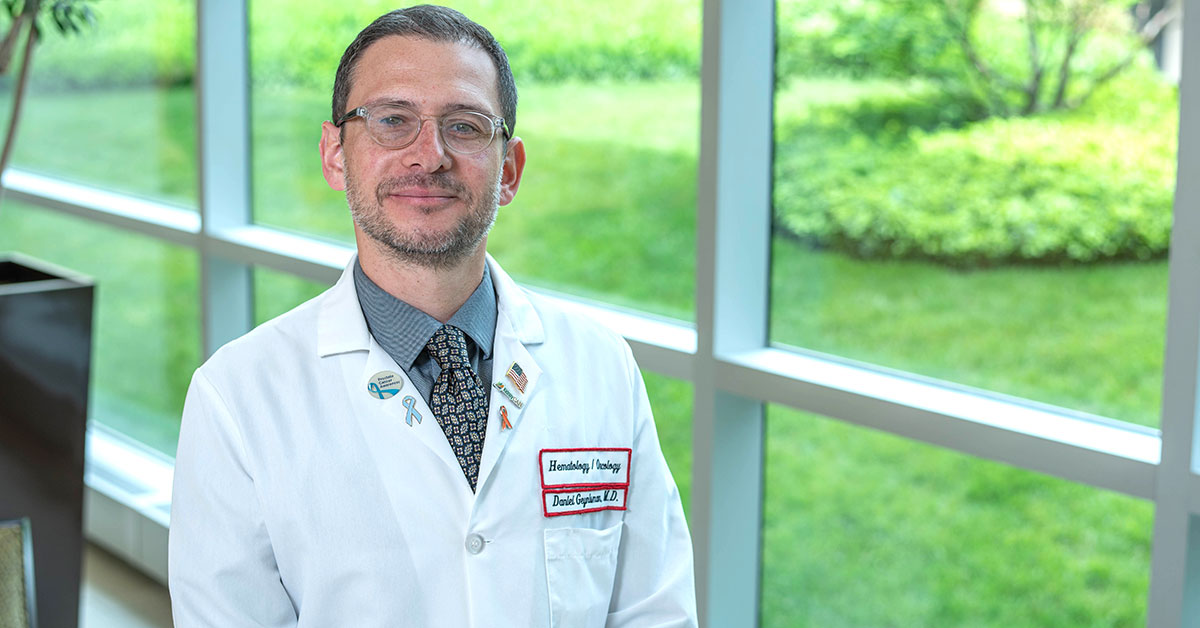
PHILADELPHIA (June 1, 2022)—African American/Black and white patients treated with similar first-line therapies for advanced kidney cancer experienced similar outcomes but different response rates, according to research from Fox Chase Cancer Center that will be presented at the 2022 American Society of Clinical Oncology (ASCO) Annual Meeting.
“This was a retrospective study looking at potential differences in treatment patterns and outcomes between African American and white metastatic kidney cancer patients,” said Daniel Geynisman, MD, the study author and chief of the Division of Genitourinary Medical Oncology at Fox Chase.
Geynisman said African American/Black patients are grossly underrepresented in all advanced renal cell carcinoma trials and clinical trials in oncology in general. Little is known about the impact of racial differences in the use of first-line therapies and clinical outcomes in the real-world setting, he added.
To address this, Geynisman and colleagues conducted a multicenter study examining data on 473 advanced kidney cancer patients with the International Metastatic Renal Cell Carcinoma Database Consortium (IMDC), a prognostic model to predict survival of metastatic kidney cancer patients with intermediate or poor-risk disease.
Use of first-line therapy, treatment discontinuation, and clinical outcomes—including disease response, landmark progression-free survival, landmark overall survival, and treatment-related adverse event rates—were assessed descriptively by race.
The likelihood of receiving first-line therapies was based on factors like performance status, which refers to a patient’s ability to perform certain daily activities such as eating, getting dressed, and bathing without help.
Ninety-five of the study patients were African American or Black patients and 378 were white. More African American patients presented with potentially more aggressive disease (poor risk by IMDC criteria) and worse performance status than white patients, Geynisman said.
“The key efficacy findings are that first, African American and white patients are often treated in similar fashions. There were no significant differences in the use of immune-based combination therapies between these groups,” said Geynisman.
“The second finding is that long-term outcomes seem generally similar between the two groups. The response rates, however, were higher in white Americans than African Americans, which is something that needs to be explored further and may have been a spurious finding due to the sample size or the retrospective conduct of the analysis,” he added.
“The next steps for this study would be to extend follow-up and to investigate why the response rates are different. We would need a larger sample size and ideally a prospective registry to really answer those questions, as well as novel genomic biomarkers to help understand any potential differences between African American and white advanced kidney cancer patients.”
Geynisman’s study, “Racial Differences in Treatment Patterns and Outcomes of First-Line Therapies for Advanced Renal Cell Carcinoma in the Real-World Setting,” will be presented in a poster session during the ASCO Annual Meeting, which is being held June 3-7 in Chicago.